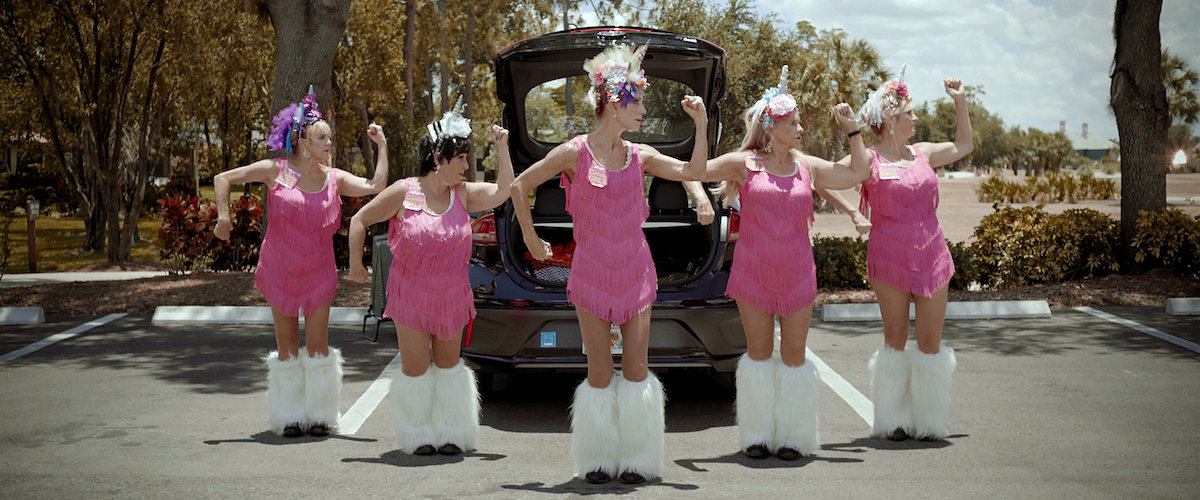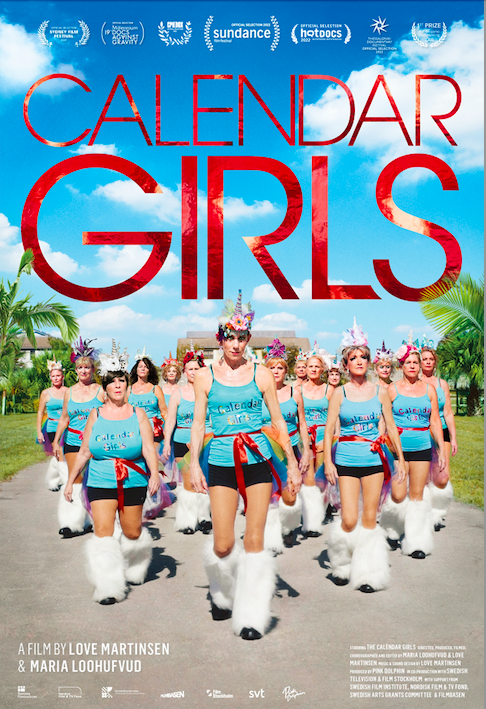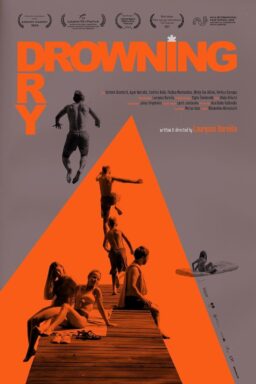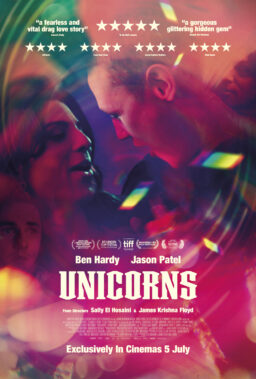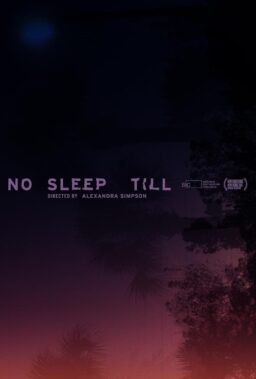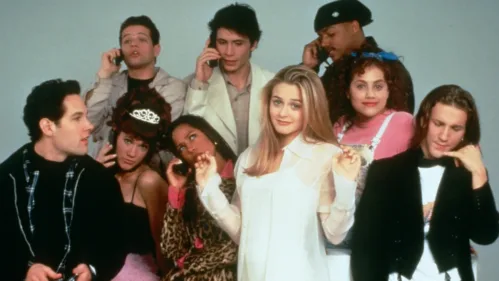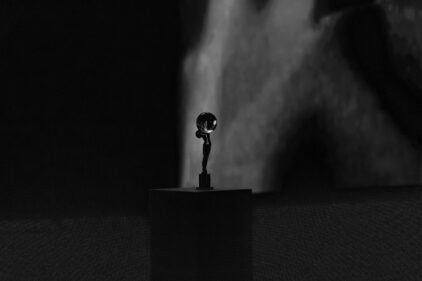“When something drastic happens, it turns me into something different,” one of the Calendar Girls explains. She is a member of a 50-and-over Florida-based dance troupe that performs more than 100 times a year, wearing fishnets, feathers, “Kiss Me You Fool” bright red lipstick, and lots and lots of bling. “We use magic from our hearts to make the world a better place,” they recite when they are dancing as rainbow unicorns. Their performances are timed to the attention span of bingo halls and nursing homes, usually 20 minutes “and when they ask for 45 they realize they should have asked for 30.” The dances are about 30 percent showgirls, 30 percent Zumba class, and 40 percent attitude. They are tons of fun to watch and wildly popular in their community. With their performances and their annual calendar sale they raise money for a program that provides dogs to disabled veterans. “We’re not just old broads out there dancing. We do this for a reason.” Dylan Thomas called on us to rage against the dying of the light. These girls (as they call themselves) would rather dance toward it.
Like the 2003 narrative film also called “Calendar Girls,” based on the true story of a Yorkshire women’s group that produced a calendar with older ladies in tastefully nude poses, and like the documentary “Young at Heart,” about residents in assisted living performing contemporary songs like “I Want a New Drug,” this is a movie about finding meaning and connection near the end of life. In one conversation, the women talk matter-of-factly about what makes a good death and whether assisted death is a good option. Another member has to leave due to illness, a very painful parting. The documentary mixes scenes of rehearsals, interviews, and performances with dreamy, impressionistic moments, one loading a car, one in a beauty salon, with the women holding hand mirrors, that add a poetic, wistful quality to the story.
A newcomer to the group says she has been a caretaker all her life, since her father left when she was 15 and her mother was not able to run the household. For the first time, as a Calendar Girl, she is doing something for herself. Later, we will see that she leaves Florida to help her daughter with a new baby, telling us there was no other decision she could make. She went where she was needed. For a while.
Some husbands have a hard time adjusting to their wives’ new lives as performing artists. One woman explains that her husband calls her lazy but she is happy to devote her time to creating elaborate head-pieces for the performers. She isn’t lazy. She has just decided that “I don’t want to clean house anymore.” Another says her husband’s reaction to the glamorous but skimpy costumes is, “You’re going out looking like that?” We see one woman struggling with a husband who may be experiencing some cognitive decline and does not want her to leave him.
The costumes and dance numbers are fun but what is most touching is the way the women care for each other. Many refer to the group as their sisters. They are disciplined but understanding. When a choreographer tells the dancers to “bring that belly in!” one responds with rueful good humor, “Some of our bellies don’t listen.” A newcomer has not learned all of the dances yet so they plan a performance around the ones she does know and give her some extra help. The group’s purpose and sisterhood transcend what might otherwise be insurmountable differences. One member is a former cop who spent her life around men and is now “in a world of 30 sisters telling me how to become a lady.” The woman who is in charge of the music is just out of prison. One of the film’s purest pleasures is seeing her managing the set list on an iPad, bobbing her head along to the dancers’ movements.
Erik Erikson wrote that at each stage of life we have a choice between a healthy path that leads to growth, meaning, and connection or one that leads to isolation, doubt, and a sense of failure. The Calendar Girls have made the choices that lead to wisdom and a sense of fulfillment in old age: learning, friendship, art, helping others, and having a lot of fun along the way.
Now playing in select theaters.

